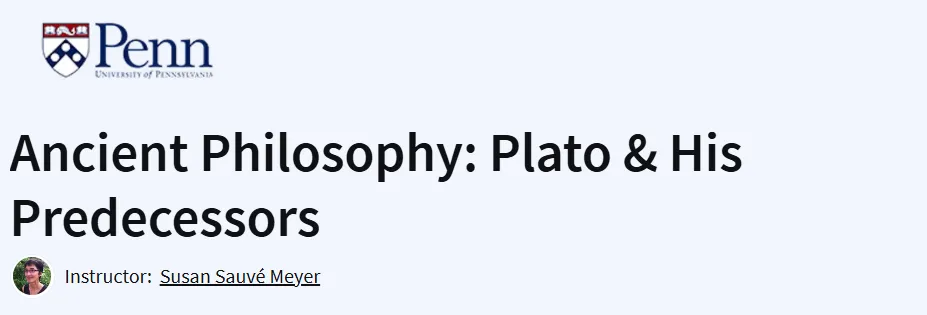What you will learn in Ancient Philosophy Course
Origins of Western Philosophy: Explore the beginnings of philosophy in ancient Greece, starting with the Presocratic natural philosophers like Thales, Anaximander, and Heraclitus.
Key Philosophical Concepts: Understand foundational ideas such as the nature of reality, the concept of change, and the existence of underlying order in the cosmos.
Socratic and Platonic Thought: Delve into Socrates’ ethical inquiries and Plato’s development of philosophical systems addressing knowledge, virtue, and the ideal state.
Philosophical Dialogues: Study the methods and teachings of these philosophers through their dialogues and writings.
Program Overview
The Milesians & Heraclitus
⏳ 2 hours
- Study the early Greek philosophers who sought the material principle of the cosmos and introduced radical new conceptions of the gods.
Parmenides to Plato
⏳ 74 hours
- Examine Parmenides’ challenge to naturalistic inquiry and the responses from later naturalists. Explore Plato’s portrayal of Socrates and his philosophical inquiries.
Plato on Virtue, Teaching, & Justice
⏳ 2 hours
- Investigate Plato’s views on virtue, the nature of teaching, and the concept of justice.
Plato on Reality & Goodness
⏳ 2 hours
- Delve into Plato’s ideas on the ultimate realities, the intelligible Forms, and the nature of goodness.
Get certificate
Job Outlook
Academic Careers: Ideal for those pursuing studies in philosophy, history, or religious studies.
Cultural Heritage: Beneficial for roles in museums, archives, and cultural institutions.
Publishing and Writing: Useful for writers and editors focusing on historical or philosophical content.
Specification: Ancient Philosophy: Plato & His Predecessors
|
FAQs
- Ancient philosophy laid the foundation for Western science, politics, and ethics.
- Concepts like justice, democracy, and rational inquiry still guide modern societies.
- Philosophical reasoning skills enhance critical thinking in today’s complex world.
- Lessons from Plato and pre-Socratics can be applied to leadership, decision-making, and problem-solving.
- No prior study of philosophy is required; the course introduces key thinkers clearly.
- Having curiosity about big questions (truth, justice, reality) is enough.
- Basic reading comprehension and willingness to reflect are the main skills needed.
- Optional background reading in mythology or history can be helpful but not essential.
- Improves critical thinking, analysis, and structured argument skills.
- Strengthens communication and persuasive writing abilities.
- Useful for careers in law, education, politics, journalism, and leadership.
- Adds depth to personal worldview, making one more adaptable and thoughtful.
- History focuses on events; philosophy focuses on ideas and reasoning.
- Literature interprets human experiences; philosophy examines concepts behind them.
- Ancient philosophy is less about memorizing facts and more about asking “why.”
- Students practice questioning, argument-building, and logical reasoning.
- Yes, philosophy provides frameworks for ethical decision-making.
- Encourages examining assumptions before making choices.
- Offers perspectives on justice, fairness, and responsibility.
- Helps build resilience by questioning life’s uncertainties rather than fearing them.





